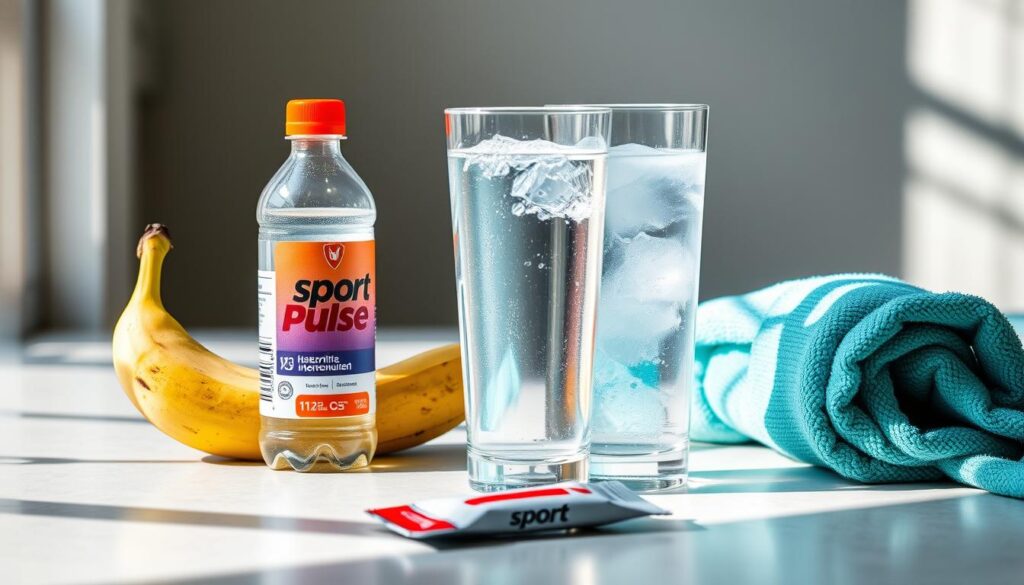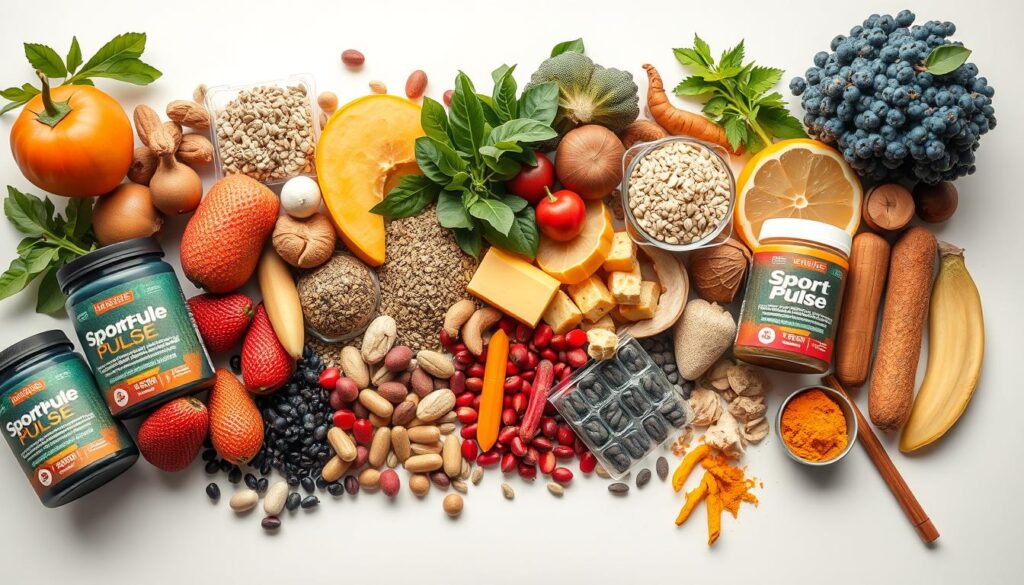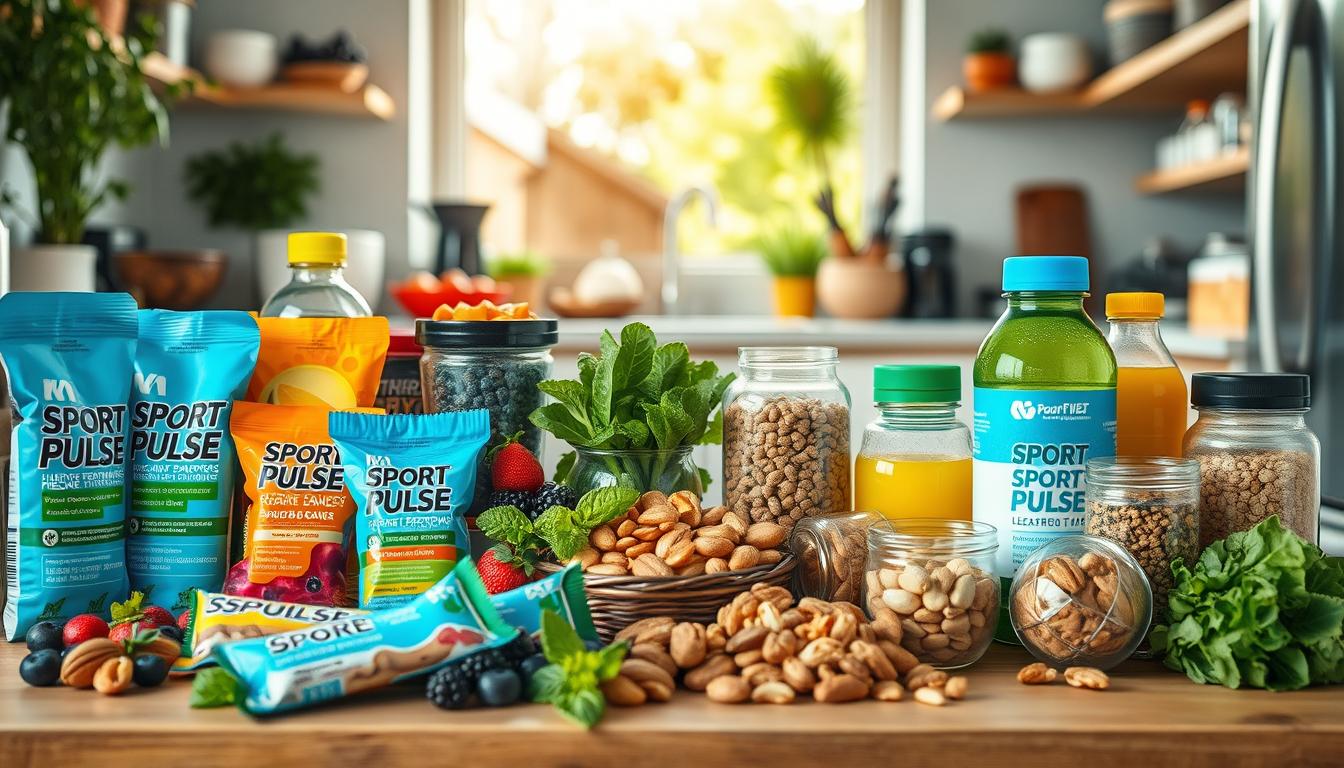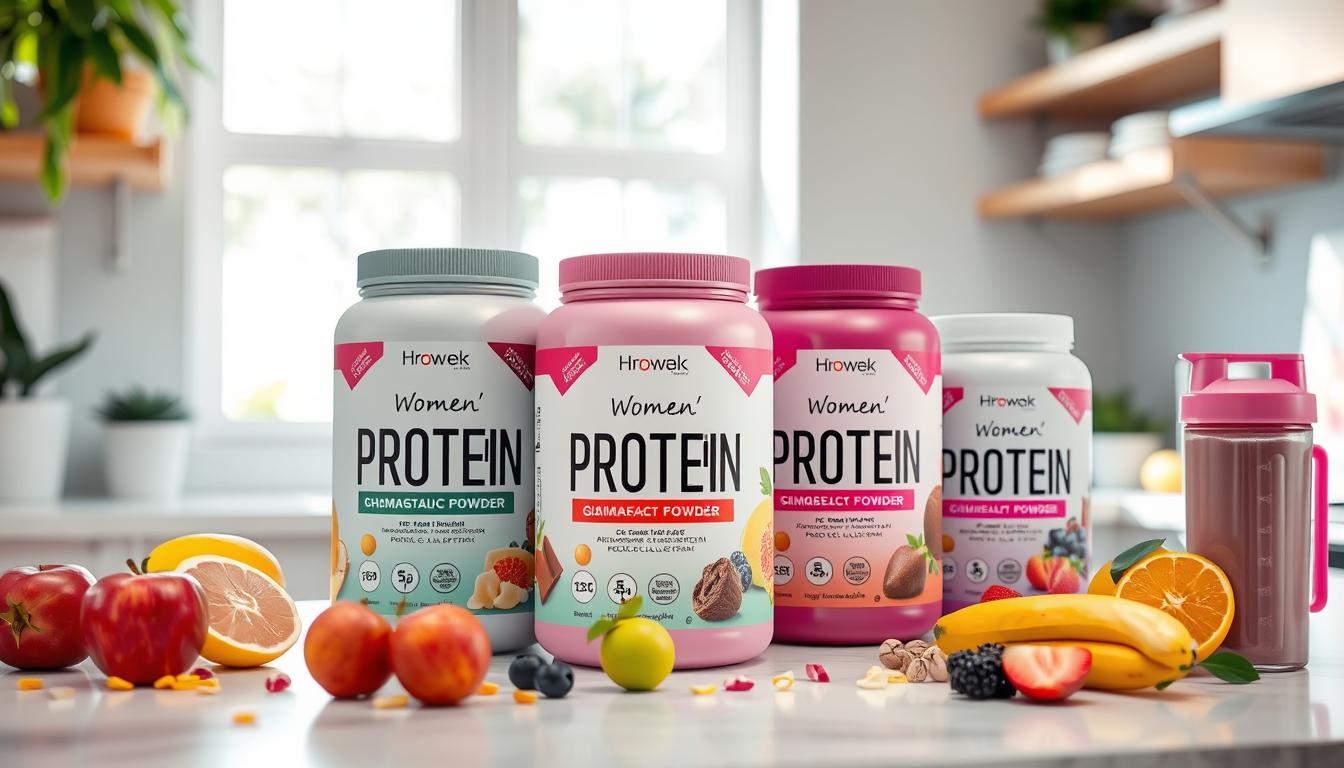Did you know that many triathletes struggle to achieve their desired body composition despite intense training? A key factor is a high-quality diet that satisfies their appetite in a calorically efficient way. Endurance athletes require a unique nutritional approach to sustain their performance, support recovery, and maintain overall health.
Proper nutrition is the foundation of endurance performance, providing the necessary fuel for training, competition, and recovery. A well-balanced diet helps athletes optimize their performance and achieve their goals.
Key Takeaways
- Understand the unique nutritional requirements for endurance athletes.
- Learn how to optimize macronutrient balance for better performance.
- Discover the importance of hydration and meal timing.
- Explore supplementation strategies to support your training.
- Implement nutrition principles to enhance endurance capacity and speed recovery.
Understanding the Nutritional Needs of Endurance Athletes
For endurance athletes, understanding nutritional needs is key to achieving optimal performance. General health is the foundation of endurance fitness, and a high-quality diet is essential for general health. A well-balanced nutrition plan supports not just the energy demands of training, but also recovery, adaptation, and overall well-being.
Why Nutrition Matters for Performance
Nutrition plays a critical role in the success of endurance athletes, impacting not just performance, but also recovery and long-term health. As noted by sports nutrition experts, “Nutrition is the cornerstone of an athlete’s ability to perform at their best and recover effectively.” Understanding why nutrition matters goes beyond simply fueling workouts.
Balancing Macronutrients for Optimal Results
Balancing macronutrients is crucial for optimizing both performance and recovery. Carbohydrates serve as the primary fuel source for high-intensity endurance activities, while proteins support muscle repair and fats provide sustained energy for the body. The ideal macronutrient ratio may shift depending on training phase and individual needs.
Carbohydrates: The Primary Fuel Source
Carbohydrates serve as the primary fuel source for endurance activities, making them a crucial component of an athlete’s nutrition plan. They are stored as glycogen in muscles and the liver, providing the energy necessary for sustained physical activity.
Complex vs. Simple Carbohydrates
Understanding the difference between complex and simple carbohydrates is essential for endurance athletes. Complex carbohydrates, such as whole grains, fruits, vegetables, and legumes, provide a steady release of energy and should form the base of your diet. In contrast, simple carbohydrates found in foods like fruits, honey, and sports drinks offer quick energy and are ideal during and immediately after exercise.
Recommended Carb Intake for Endurance Training
Aim for 6-10 grams of carbohydrates per kilogram of body weight daily, depending on your training intensity. This intake ensures that your body has adequate energy stores for optimal performance. For instance, an athlete weighing 70 kilograms may require between 420 and 700 grams of carbohydrates daily.
Carb Loading Strategies Before Events
Strategic carb loading before competition can maximize muscle glycogen stores, potentially improving performance in events lasting longer than 90 minutes. This involves increasing carbohydrate intake 1-3 days before the event to top off energy stores.

Protein Requirements for Muscle Recovery and Repair
Protein plays a vital role in the recovery process for endurance athletes, helping to repair and rebuild muscle tissue damaged during prolonged exercise. Endurance training causes significant muscle stress, leading to tissue damage and inflammation. Adequate protein intake is essential for facilitating recovery, supporting muscle repair, and enabling athletes to adapt to the demands of their training.
Optimal Protein Intake per Kilogram Body Weight
Endurance athletes require a specific amount of protein to support their training needs. The recommended daily intake is between 1.2 to 2.0 grams of protein per kilogram of body weight, depending on the intensity and volume of training. For instance, an athlete weighing 70 kilograms may need between 84 to 140 grams of protein daily. It’s crucial to consider individual factors such as training phase and overall dietary needs when determining optimal protein intake.
Timing Your Protein Consumption
The timing of protein consumption is also critical for maximizing its benefits. Consuming 20-25 grams of high-quality protein within 30-60 minutes after exercise can significantly enhance recovery and muscle protein synthesis. Furthermore, distributing protein intake evenly throughout the day (every 3-4 hours) is more effective than consuming it in fewer, larger doses. This approach helps maintain a positive nitrogen balance, supporting muscle recovery and adaptation.

Essential Nutrition Tips for Endurance Athletes: Hydration and Electrolytes
Maintaining adequate hydration and electrolyte levels is vital for endurance athletes to achieve peak performance. Hydration is critical for various bodily functions, including temperature regulation and joint lubrication. Proper hydration is fundamental for endurance performance, affecting everything from temperature regulation to nutrient transport and cognitive function.
Daily Hydration Guidelines
Aim for at least 3 liters (about 13 cups) of fluid per day for men and 2.2 liters (about 9 cups) for women. Daily hydration needs vary based on body size, training volume, climate, and sweat rate. Most endurance athletes require 2.5-3.5 liters of fluid daily at minimum.
Electrolyte Balance During Long Training Sessions
For activities longer than an hour, replenish electrolytes, especially sodium, potassium, and magnesium, to prevent cramps and maintain performance. Electrolytes are essential for fluid balance, muscle contraction, and nerve function during endurance activities. Electrolyte replacement becomes increasingly important for sessions lasting longer than 60-90 minutes or in hot conditions.
| Electrolyte | Function | Food Sources |
|---|---|---|
| Sodium | Fluid balance, nerve function | Table salt, sports drinks, pickles |
| Potassium | Muscle contraction, nerve function | Bananas, avocados, nuts |
| Magnesium | Muscle contraction, energy production | Dark leafy greens, nuts, seeds |
Signs of Dehydration to Watch For
Learning to recognize early signs of dehydration, such as dark urine, thirst, headache, and fatigue, can help prevent performance decrements and health risks during training. Dehydration of just 2% body weight can significantly impair performance.

Healthy Fats: The Overlooked Energy Source
Healthy fats play a vital role in the diet of endurance athletes, serving as a secondary energy source and supporting various bodily functions. Fats are a crucial nutrient for athletes, providing long-lasting energy for low-intensity, long-duration activities.
Benefits of Fats for Endurance Performance
Fats are essential for endurance performance as they aid in the absorption of fat-soluble vitamins (A, D, E, K) and provide a sustained energy source. During lower-intensity endurance activities, fat serves as the primary fuel source, making it essential for long-duration events and training sessions. Research has shown that fat adaptation can help spare glycogen stores and potentially improve endurance performance.
Best Sources of Healthy Fats for Athletes
Athletes should prioritize unsaturated fats while minimizing saturated and trans fats. Sources of healthy fats include fatty fish, flaxseeds, walnuts, olive oil, avocados, and nuts. These foods provide essential fatty acids that support both performance and overall health.
Strategic Meal Timing for Training and Recovery
The nutritional strategy for endurance athletes involves not just what they eat, but when they eat it. Meal timing can significantly influence training quality, energy availability, and recovery. By understanding how to fuel the body appropriately at different times, athletes can optimize their performance and reduce the risk of fatigue or injury.
Pre-Workout Nutrition
Aim for a balanced meal 2-3 hours before training, including carbohydrates, protein, and fats. For morning workouts, even a small carbohydrate snack can improve performance compared to training on an empty stomach. Pre-workout nutrition should focus on easily digestible carbohydrates with moderate protein and low fat, consumed 1-3 hours before training.
Fueling During Exercise
During exercise lasting longer than 60-90 minutes, consuming 30-60g of carbohydrates per hour can delay fatigue and maintain energy levels. Easily digestible carbohydrates like sports drinks or gels are ideal for maintaining energy during prolonged training sessions.

Post-Workout Recovery Nutrition
After exercise, prioritize protein and carbohydrates to replenish glycogen stores and support muscle recovery. Consuming carbohydrates within 30 minutes post-exercise helps replenish glycogen stores. Aim for 1-1.2 grams of carbohydrates per kilogram of body weight and 20-30 grams of high-quality protein post-workout. A 3:1 or 4:1 ratio of carbohydrates to protein is often recommended for optimal recovery after endurance exercise.
Micronutrients and Supplements for Endurance Athletes
Micronutrients are the unsung heroes of an endurance athlete’s diet, supporting various bodily functions critical for performance. These nutrients, though required in smaller amounts compared to macronutrients, play significant roles in energy production, oxygen transport, muscle contraction, and recovery.

Key Vitamins and Minerals for Performance
Endurance athletes have higher demands for certain vitamins and minerals, such as iron, calcium, vitamin D, and magnesium. Iron is crucial for oxygen transport and energy production, with deficiencies being common, especially in female athletes. Vitamin D supports bone health and immune function, and many athletes, particularly those in northern climates or training during winter, show insufficient levels. B vitamins are also critical for energy metabolism, with increased needs in athletes who train intensely.
Other essential micronutrients include antioxidants like vitamins C and E, along with minerals such as zinc and selenium, which support immune function and recovery from oxidative stress. Calcium and magnesium are vital for bone health, muscle contraction, and nervous system function.
When to Consider Supplementation
While a food-first approach is ideal, strategic supplementation may be beneficial when dietary intake is insufficient or when needs are elevated due to training demands. Regular blood testing can identify specific micronutrient deficiencies that may impact performance and guide targeted supplementation strategies. For instance, if an athlete’s iron levels are low, supplementation can help prevent fatigue and decreased performance.
It’s also worth noting that a multivitamin can help fill any nutritional gaps in an athlete’s diet. However, it’s essential to consult with a healthcare professional to determine the best course of action for individual needs.
Conclusion: Creating Your Personalized Nutrition Plan
Creating a personalized nutrition strategy is key to unlocking your full potential in endurance sports. Every athlete is different, so it’s essential to find what works best for you. Experiment with different foods, drinks, and timing strategies during training to determine what fuels you best without causing gastrointestinal distress.
To develop an effective nutrition plan, start by establishing your baseline caloric needs and calculating your macronutrient targets based on your weight and activity level. Aim for 5-10g of carbohydrates per kilogram of body weight, 1.2-2.0g of protein per kilogram, and sufficient fats to meet energy needs.
Consider consulting with a sports nutritionist for personalized advice, especially if you have specific goals, dietary restrictions, or persistent performance issues. They can help you develop a tailored nutrition plan that addresses your unique needs and enhances your overall health and performance. By doing so, you’ll be able to optimize your training and achieve your endurance goals.


